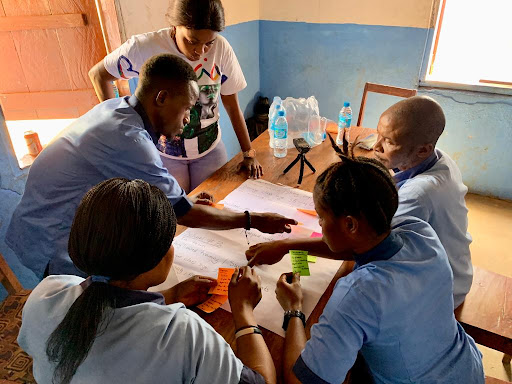The Impact of GIS-Supported Teacher Allocation in Sierra Leone
Country: Sierra Leone | Topic Area: Data for Decisions
Quick links
Project summary
The workforce is the most important school-level determinant of learning. However, decision-makers in low-income countries struggle to deliver an equitable distribution of teachers.
In Sierra Leone, this challenge is particularly acute. Here, the pupil–qualified teacher ratio rises from 44:1 for schools in urban centres to 76:1 for schools in rural areas.
Now, the Government of Sierra Leone plans to harness GIS to improve teacher allocation. This systemic mixed-methods study will build evidence on the most feasible approach to GIS-supported teacher allocation in Sierra Leone and assess the impact of this approach on teacher retention and attendance.
Research questions
- How can decision-makers in low- and middle-income countries improve teacher allocation processes?
- What impact does GIS-supported teacher allocation have on job uptake, teacher retention, and teacher attendance?
Discover evidence
Factors Related to Teacher Absenteeism in Sierra Leone: Literature review
School Leaders’ Preferences on School Location in Sierra Leone: An individual and school-level study
What Matters Most for Teacher Deployment? A case study of teacher preferences in Sierra Leone
When teachers are asked to deploy other teachers, we learn a lot about teacher preferences
School-to-School Mobility Patterns and Retention Rates of Payroll Teachers in Sierra Leone
Where do teachers go, and where do they stay?
Teacher Deployment in Sierra Leone: Lessons learnt and moving forward
Research
- The Impact of GIS-Supported Teacher Allocation in Sierra Leone — Inception Report
Outputs register
The outputs register lists all of the products produced as part of the EdTech Hub-commissioned research project on the impact of GIS-supported teacher allocation in Sierra Leone. This collaborative effort involved the contributions of EdTech Hub, Fab Inc, and the Education Workforce Initiative.
All outputs are available to the public via the EdTech Hub Evidence Library.
Study contacts
- Björn Hassler, Principal Investigator — Contact Björn
- Paul Atherton, Co-Principal Investigator — Contact Paul
- Amy Bellinger, Co-Principal Investigator — Contact Amy
- Chris McBurnie, Lead researcher
Key partner roles
- Teaching Service Commission — Implementing partner
- Fab Inc — Research partner
- Education Commission — Research partner





